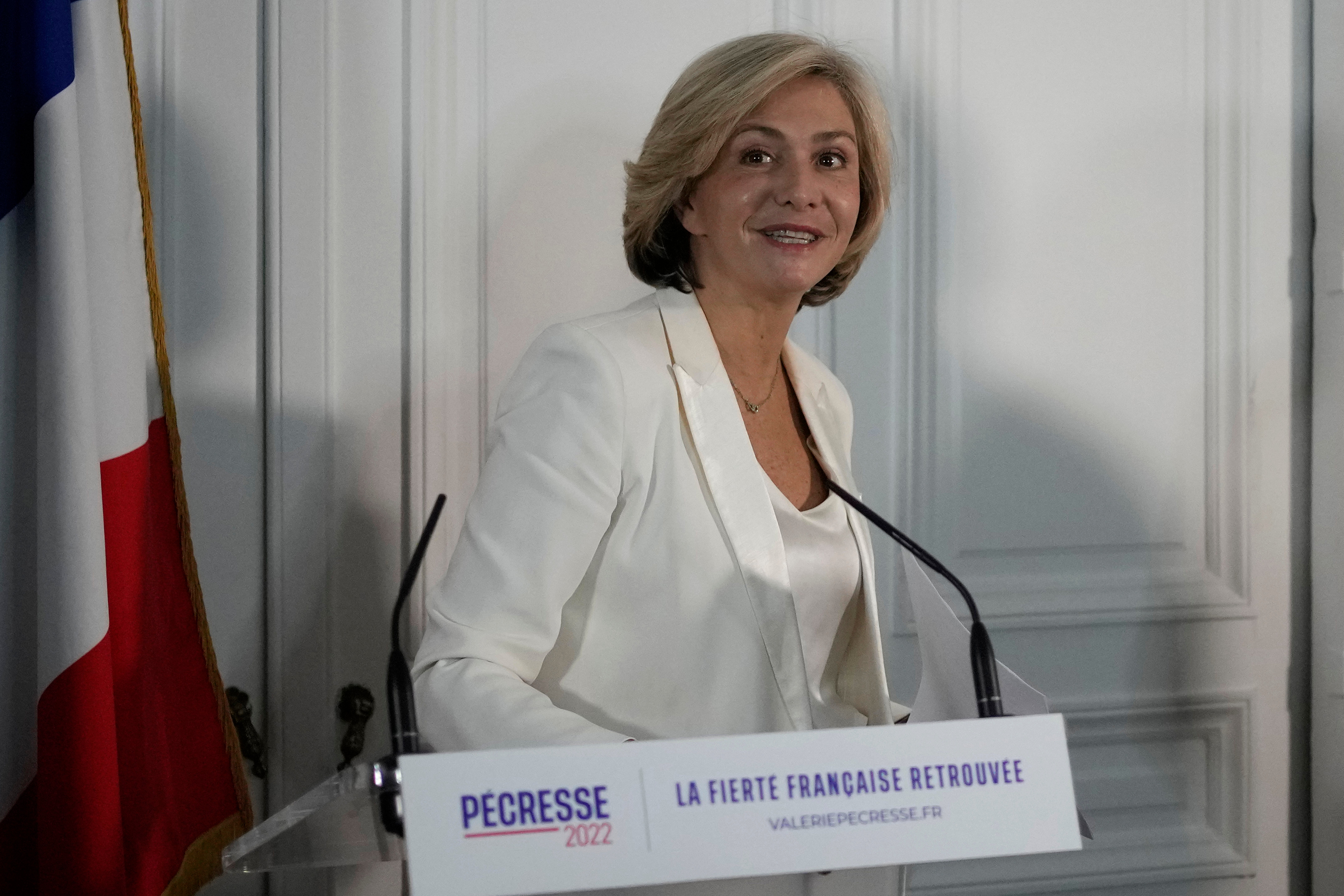France's conservative party to choose presidential candidate
Members of France’s main conservative party are picking their presidential candidate, a decision that could significantly shape April’s election

Your support helps us to tell the story
From reproductive rights to climate change to Big Tech, The Independent is on the ground when the story is developing. Whether it's investigating the financials of Elon Musk's pro-Trump PAC or producing our latest documentary, 'The A Word', which shines a light on the American women fighting for reproductive rights, we know how important it is to parse out the facts from the messaging.
At such a critical moment in US history, we need reporters on the ground. Your donation allows us to keep sending journalists to speak to both sides of the story.
The Independent is trusted by Americans across the entire political spectrum. And unlike many other quality news outlets, we choose not to lock Americans out of our reporting and analysis with paywalls. We believe quality journalism should be available to everyone, paid for by those who can afford it.
Your support makes all the difference.Members of France’s main conservative party are picking their presidential candidate Saturday, a decision that could significantly shape April’s election.
The head the Paris region, Valérie Pécresse, and a hardline lawmaker from Nice, Eric Ciotti, are competing in the final round of The Republicans’ primary.
About 140,000 registered members of The Republicans are eligible to participate in the electronic voting. The result is to be announced later Saturday.
Immigration and security emerged as top issues in the party primary largely because of another presidential candidate, far-right former TV pundit Eric Zemmour. Zemmour, an author and former journalist with multiple hate-speech convictions, formally declared his candidacy this week in a video relaying anti-migrant, anti-Islam imagery.
Pécresse, 54, is a former minister and government spokesperson under conservative President Nicolas Sarkozy from 2007 to 2012.
If elected by party members and later by French voters, she vowed to “break” with the centrist policies of incumbent President Emmanuel Macron Macron is expected to seek a second term but he has yet to formally declare his candidacy.
Pécresse said her first action as president would be to end France s 35-hour workweek so employees work and earn more. She also has has promoted a tough stance on immigration, saying that people who entered the country illegally should be deported.
A supporter of the European Union, Pécresse left The Republicans in 2019 amid leadership divisions after the party had a poor showing in EU elections. She rejoined the party this year to be able to participate in the primary.
Ciotti, 56, is known for his longstanding positions as part of the party's right wing, especially on security, immigration and religion.
He wants wording about France’s Christian roots added to the Constitution and a ban on Muslim girls wearing veils.
Ciotti vowed to massively reduce immigration and wants to change the law that grants nationality to people born in French territory. He proposes instead nationality by descent, or the “right of blood.”
He also wants to establish a “French Guantanamo” to imprison people convicted of terror-related charges.
Zemmour and the other well-known far-right candidate, National Rally leader Marine Le Pen have expressed similar views.
The Republicans, which still heads several regional assemblies and holds a majority in the French Senate, is the last of France’s traditional parties to choose its presidential contender.
On the left, Paris mayor Anne Hidalgo is running for the Socialist party, and the Greens chose European lawmaker Yannick Jadot, a former Greenpeace activist. The far-left leader of the Rebel France party, Jean-Luc Mélenchon, is seeking the presidency for the third time.